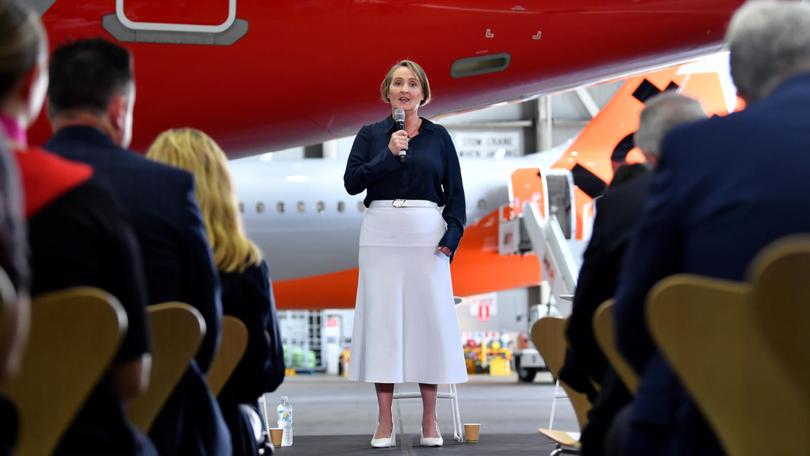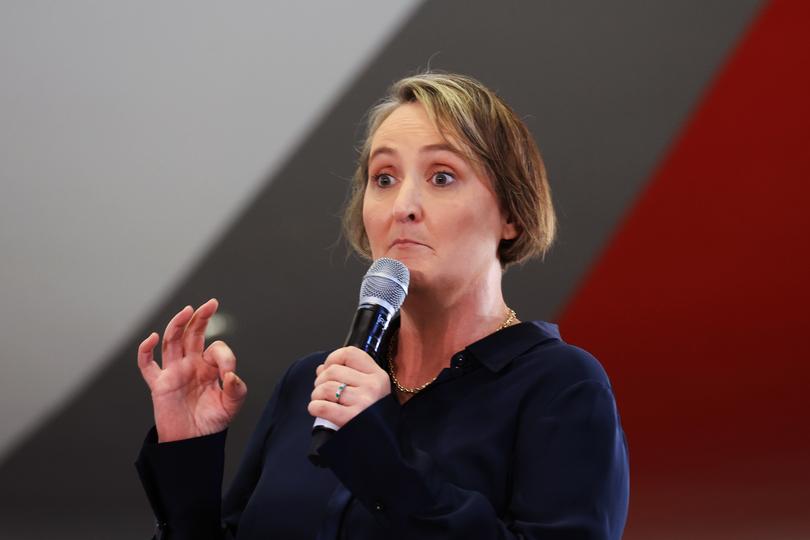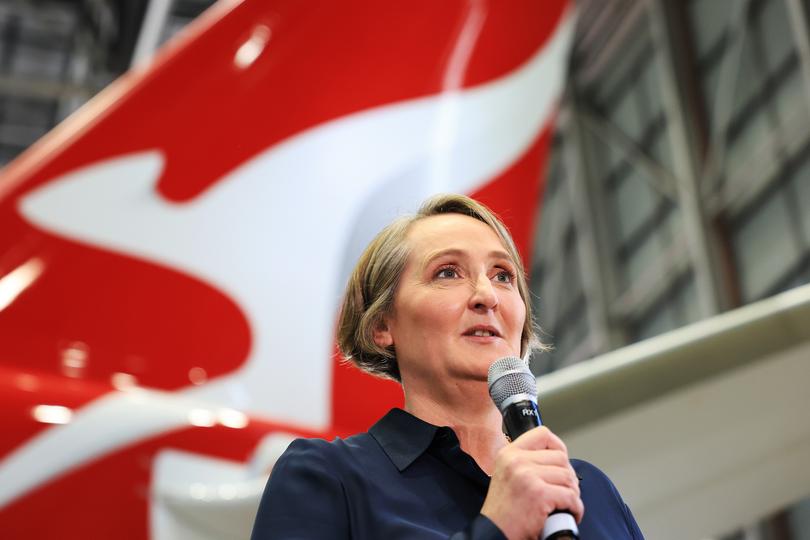LEADERS SURVEY: Qantas boss Vanessa Hudson on the importance of authenticity
After taking on the top job at Qantas, Vanessa Hudson shares the best advice she’s received.

How does the boss of Qantas, which started flying across a sunburnt country more than 100 years ago, tackle its next 100 years?
With authenticity, says its chief executive Vanessa Hudson, who stepped into the role last year after taking over from the airline’s long-standing — and polarising — leader Alan Joyce.
“The best advice I’ve been given is to be authentic,” Ms Hudson told The Nightly for its exclusive Leaders Survey.
Sign up to The Nightly's newsletters.
Get the first look at the digital newspaper, curated daily stories and breaking headlines delivered to your inbox.
By continuing you agree to our Terms and Privacy Policy.“People appreciate the honesty and sometimes the vulnerability that comes with that, and it makes it easier for people to connect and relate to you.
“That might mean sharing some personal reflections or simply being more candid.”
While still in her first year in the top job, Ms Hudson has worked at Qantas for almost 30 years, moving her way through a range of roles, before being announced as the group’s chief financial officer in June 2019. Last year, after the resignation of the controversial Mr Joyce, Ms Hudson took over with a full range of issues to tackle.
She is focused firmly on future plans, in particular how the airline navigates its “challenging” path to net zero emissions.
“The biggest challenge Australia faces is the same faced by most developed economies, which is how we decarbonise energy and transport,” she said.
“In aviation, this means using sustainable aviation fuel, which is similar to fossil fuel jet fuel but made from sustainable feed stocks. SAF is key because it’s the only viable alternative that can be used in aircraft today. Qantas’ target is for 10 per cent of fuel use to come from SAF by 2030 and 60 per cent by 2050.

But Ms Hudson said the fuel was not viable without government support, calling on both the Government and Opposition to prioritise measures in the upcoming Federal Budget.
“Without Australian Government support for producers, the domestic industry cannot meet decarbonising targets,” she said.
“When we look around the world, the EU has progressive blending mandates, the US has financial subsidies for producers and the UK is looking at a hybrid of both approaches coupled with grant funding.
“We strongly believe government policy should include a blending mandate for the use of SAF by airlines, capital grants for producers and price incentives.”
The challenge of net zero though will be made easier, she said, with the next generation of Qantas’ fleet.
“They mean lower emissions, longer range, less noise and better economics,” she said.
“As one example, the QantasLink A220 that’s just entered service uses up to 25 per cent less fuel and CO2 emissions per seat than the Boeing 717s it replaces.
“It’s more comfortable, quieter and has double the range, which really opens the opportunity for new routes.”
As head of the national airline, Ms Hudson said Australia’s great global opportunity had been kickstarted after the pandemic, as people started to connect again.

Tourism remains Australia’s big opportunity. People all over the world have once again found their passion to travel and explore.
“We should be taking every opportunity to encourage people from all over the world to find and enjoy what we have here,” she said.
And that’s not just sunny beaches and stunning sunsets, but a reputation for research, development and commercialisation, which Ms Hudson says Australia has the capability to build on.
“We have some of the most skilful scientists and researchers across so many disciplines and as a nation we’re entrepreneurial,” she said
“I believe we need innovative thinking to help address the challenges and Australian know-how can make a valuable contribution.
“I think the biggest threat is productivity, because it’s impacting businesses’ ability to compete and it’s holding back the growth of our economy. I see improving productivity as an exciting challenge that can engage the whole workforce.”

